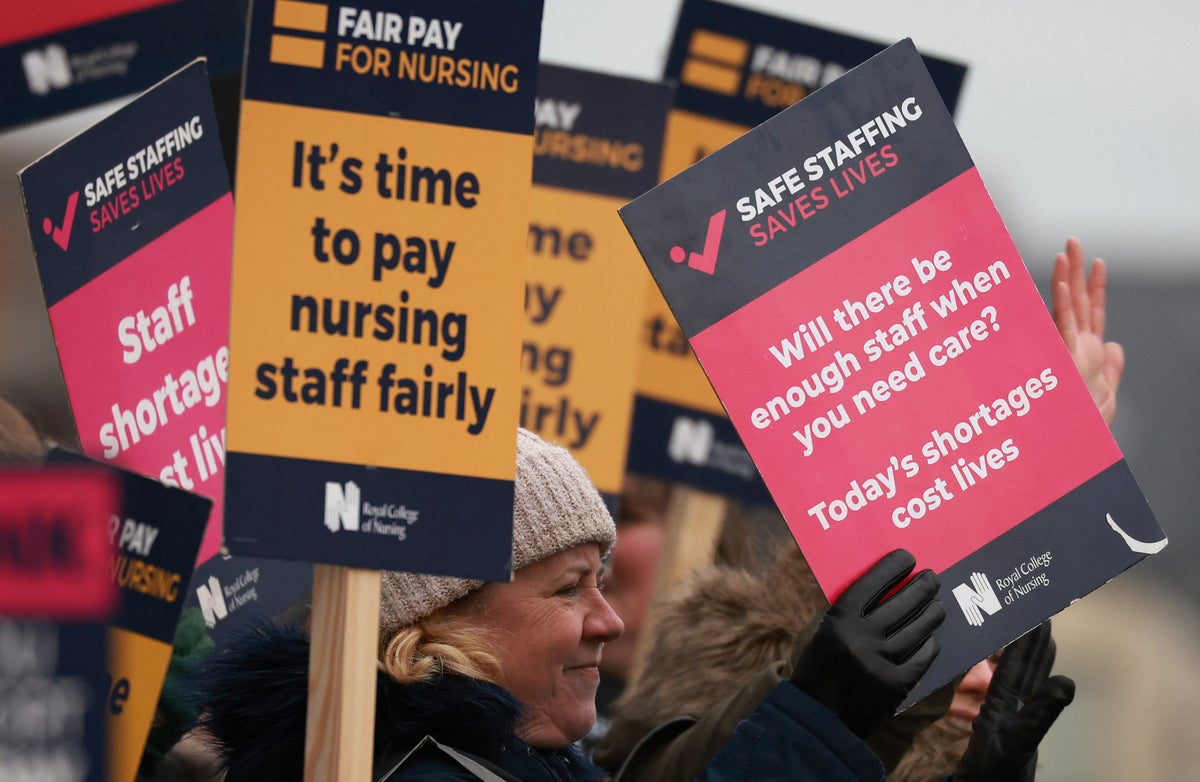
Fresh industrial action will have a “significant impact” on the NHS, the Royal College of Nursing (RCN) has warned.
The RCN has announced walkouts at more than 120 NHS employers in England in a significant escalation of its row over pay and staffing - and the next strike will run continuously for 48 hours from 6am on 1 March.
Previous action took place only during the day shift, for 12 hours each time.
In a first, the RCN will involve nursing staff working in emergency departments, intensive care units, cancer care and other services that were previously exempted.
On Friday, RCN general secretary Pat Cullen accepted strikes would add to risks to patients, but resisted accepting a characterisation that it would pose a significant risk to patients.
East Suffolk and North Essex NHS Foundation Trust chief executive Nick Hulme told BBC Radio 4’s Today programme the planned strikes “will be very different and it’s clearly a much higher risk” than previous strikes, adding there is “significant risk”.
Ms Cullen was asked on the programme if she accepted there would be significant risk to patients, and she said: “What I accept is that there will be significant changes in the 48 hours. And of course there will continue to be extreme challenges.”
Asked again, she said: “What our patients are facing every day, in a depleted health service, a health service in crisis, poses significant risk and significant challenge.”
The college, which has accused the UK government of refusing to engage in negotiations, has also said it will increase financial support for its members who lose wages by taking industrial action.
It comes as thousands more ambulance workers have voted to strike in the long-running dispute over pay and staffing.
Unison said the growing NHS dispute will now cover ambulance services and other NHS organisations across most parts of England.
Announcing re-ballot results of thousands more health workers, Unison said staff at another four English ambulance services and five NHS organisations, including NHS Blood and Transplant, will now be able to strike in a “significant escalation” of the dispute.
The union said ambulance staff at four services in England: South Central, East of England, West Midlands and East Midlands; had voted to take industrial action.
They’ve been joined today by health workers at: NHS Blood and Transplant; Great Ormond Street Hospital; the Tavistock and Portman NHS Foundation Trust; Liverpool Women’s Hospital; and the Bridgewater Community Trust.
The 12,000 staff involved in the re-ballots can now take part in the ongoing dispute alongside their NHS colleagues at ambulance services in London, Yorkshire, the North East, North West and South West.
Since the dispute over pay and staffing began in December, staff at these service have taken strike action on four occasions.
As a fresh wave of industrial discontent looms, The Independent has mapped all of the NHS employers set to strike in March:
With additional reporting from PA





